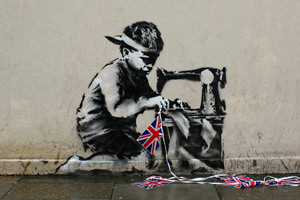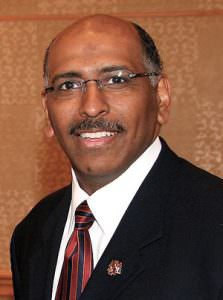Where Do Today’s Slaves Live?
There are 30 million slaves in the world and 60,000 of them live in the United States, according to a new report. It's time to acknowledge that slave labor still exists in many forms and do something about it.
It’s easy to think of slavery as a thing of the past when it’s not visible in our everyday lives. But the cold hard truth is slave labor still exists in many forms, and it’s time to do something about it.
The anti-slavery nongovernmental organization Walk Free Foundation is doing its part to address the issue by raising awareness about modern day bondage with its Global Slavery Index. Defined by the group as several different types of forced labor, the term “slavery” includes arranged marriages for underage children and other forms of sexual exploitation, as well as hereditary bondage and, most prominently, work in the private sector under slave conditions.
And by this definition, according to Walk Free, there are 30 million slaves in the world, and 60,000 of them live in the United States. Here’s a list of some of the companies that profit from slave labor, according to The Atlantic:
This summer, an Australian man imprisoned in China reported that prisoners were making headphones for global airlines like Qantas and British Airways. Some 300,000 sets of the disposable headphones were made by uncompensated prisoners who were forced to work without pay and regularly beaten. The index says that there are about 3 million slaves in China, in state-run forced labor camps, at private industrial firms making electronics and designer bags, and in the brick-making industry.
Companies like Apple, Boeing and Intel—among thousands of others—have been under pressure to document that the tin, tantalum, tungsten, and gold they use aren’t being mined by slaves in the Democratic Republic of Congo, where a civil war has led armed groups seeking funding to force civilians to work. The US Securities and Exchange Commission adopted a rule forcing American firms to trace the minerals they use to their origins, and while business lobbies have sued to overturn it, industry leaders have begun planning to file the first required reports in May 2014.
In the Asian seafood industry, migrant workers may become forced laborers who harvest and prepare mackerel, shrimp and squid bound for markets around the world.
Côte d’Ivoire is the world’s leading supplier of cocoa—some 40 percent of the global supply—and much of it is grown and harvested by some children engaged in forced labor. In 2010, Côte d’Ivoire said 30,000 children worked on cocoa farms, although Walk Free’s index estimates as many as 600,000 to 800,000. While this has been widely reported on since 2000, and the global response has been strong, compared to that of other allegations of forced labor, the problem has not really been solved. As of 2012, 97 percent of the country’s farmers have not participated in industry-sponsored campaigns against forced child labor. Mondelez International, the world’s largest chocolate producer, which owns brands such as Milka, Toblerone and Cadbury, has struggled for years to take forced labor out of its supply chain. It committed $400 million to a program aimed at creating a sustainable cocoa economy last year, but its efforts have been ineffective so far.
The idea behind the Global Slavery Index, funded by Fortescue Metals Group Chairman Andrew Forrest, is to force companies to acknowledge that many of the workers involved in even seemingly minute parts of creating their products are in fact slaves. Ultimately, Forrest intends the data to be a slap in the face of companies turning a blind eye toward forced labor and to inspire them to “eliminate slavery from their supply chains.”
As for consumers, campaigns such as these can help people make informed decisions when buying the latest Apple product or even ordering shrimp at dinner.
—Posted by Natasha Hakimi
Your support matters…Independent journalism is under threat and overshadowed by heavily funded mainstream media.
You can help level the playing field. Become a member.
Your tax-deductible contribution keeps us digging beneath the headlines to give you thought-provoking, investigative reporting and analysis that unearths what's really happening- without compromise.
Give today to support our courageous, independent journalists.




You need to be a supporter to comment.
There are currently no responses to this article.
Be the first to respond.